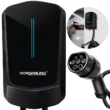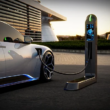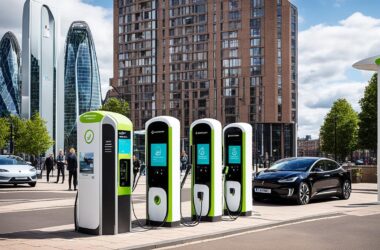Exploring the Proper Use, Risks, and Safety Measures
Bridging the Gap with Extension Leads
When the granny cable falls short of reaching the socket, a heavy-duty 13A extension lead becomes the bridge, offering approximately 8 miles of range per hour. However, it’s crucial to understand the nuances and potential risks associated with using extension leads for charging electric vehicles (EVs).
Choosing the Right Extension Lead
Selecting an extension lead demands careful consideration. It should be of at least 13A rating, ensuring it can handle the power requirements without overheating. Never resort to using extension leads rated below 13A, designed for low-current appliances, to charge an EV. Avoid using standard multi-socket extension leads, as they are not suitable for this purpose.
3 Pin Extension Cable for EV Charging
For EVs with a 3 pin plug, a high-quality extension cable becomes a valuable asset. Choosing one with an appropriate amperage rating (typically 16A or 32A) matching your EV charging equipment is vital. The pins and sockets must exhibit sturdiness and weatherproof qualities, especially for outdoor use. Opt for UV and water-resistant cables for added durability.
Safety Concerns and Fire Hazards
While extension leads offer convenience, concerns about fire hazards persist. Most extension cords are not designed for prolonged use during EV charging, leading to potential overheating issues. Manufacturers often caution against their use due to the lack of control over third-party product quality. Safety should be a top priority, and in case of doubts, seeking manufacturer advice is recommended.
Heavy-Duty Extension Leads for EV Charging
Charging an electric car, particularly at home, often necessitates a heavy-duty extension lead to span the distance between the charging point and the parked vehicle. Standard leads may not withstand the demands of EV charging. Look for leads explicitly designed for EV charging, featuring a rating of at least 13A to 15A based on your charging equipment.
Ensuring Safety During EV Charging
Charging an EV with an extension lead can be safe if done correctly. Essential guidelines include using a heavy-duty 13 amp extension cord rated for high-wattage appliances. Regularly inspect the cord for any signs of wear or damage. For outdoor use, opt for waterproof, outdoor-rated cords. Keep cords fully unraveled during charging to dissipate heat effectively.
Manufacturer Recommendations and Avoiding Daisy-Chaining
Checking with the EV manufacturer is crucial. Some advise against using extension cords due to fire hazards. Avoid daisy-chaining extension leads, as it poses severe dangers, including overheating and potential fire risks.
Overnight Charging and Seeking Professional Installation
While charging overnight with an extension cord is possible, it’s essential to use a 13A extension lead, fully uncoiled. For faster-charging options, consider professional installation of a Commando socket or a smart charger, ensuring safe and efficient overnight charging.
Conclusion: Prioritizing Safety in EV Charging
In summary, charging an electric car with an extension lead is viable and safe when adhering to specific guidelines. Selecting the right extension lead, avoiding daisy-chaining, and prioritizing safety considerations, including manufacturer recommendations, ensures a seamless and secure charging experience. It’s imperative to make informed choices, safeguarding both your EV and property.









